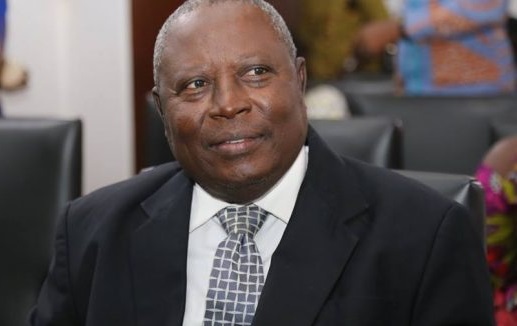Martin Amidu
The Supreme Court has affirmed the appointment of Martin A. B. K. Amidu as Ghana’s Special Prosecutor.
The court, in a 5-2 majority decision, dismissed a writ challenging the eligibility of Mr. Amidu to occupy the office because of his age, which the plaintiff claimed was more than the 60 years that the law allowed for public office holders.
The former Attorney General (AG), who was nominated as Ghana’s first Special Prosecutor in January 2018 and was subsequently sworn into office in February after a rigorous vetting in Parliament in 2018, was tasked to prosecute corruption-related crimes.
NDC MP Suit
He was 65 years at the time of his nomination and swearing-in and as a result, Dr. Dominic A. Ayine, National Democratic Congress (NDC) Member of Parliament (MP) for Bolgatanga East and former Deputy AG under the Mahama administration, filed an action at the Supreme Court, seeking the interpretation of Article 190 (1) (d), which caps the retirement age for public office holders at 60.
Court Verdict
The Chief Justice, Justice Kwasi Anin-Yeboah, delivering a 5-2 majority decision, dismissed the writ but said the reasons for the dismissal would be made available at the court registry.
Justices Anin-Yeboah, Paul Baffoe-Bonnie, Samuel Marful-Sau, Nene Amegatcher and Prof. Nii Ashie Kotei formed the majority, while Justices Sule Gbadegbe and Agnes Dordzie dissented.
Ayariga Trial
The dismissal of the writ paves the way for the trial of opposition NDC MP for Bawku Central, Mahama Ayariga, which was put on hold to await the decision of the Supreme Court on Mr. Amidu’s appointment.
Mr. Ayariga and six other current and former officials of the Bawku Municipal Assembly were hauled before an Accra High Court by the Special Prosecutor for offences relating to the purchase of an ambulance.
The same NDC MP has again been charged by the Special Prosecutor for allegedly using the public office he holds for his personal gains by importing vehicles into the country illegally.
Main Writ
Dr. Ayine filed the action at the Supreme Court challenging that Mr. Amidu’s age did not qualify him to be appointed as the Special Prosecutor after he had been nominated by the AG and endorsed by the President.
He sought reliefs including “a declaration that by a true and proper interpretation of Articles 190 (1) (d), 199 (1) (4) and 295 of the 1992 Constitution, the requirement age of all holders of public offices created pursuant to Article 190 (1) (d), was 60 years, anyhow not beyond 65 years.”
The former Deputy AG further wanted a declaration that “by reason of his age, Mr. Martin Alamisi Burns Kaiser Amidu is not qualified or eligible to be approved by Parliament as the Special Prosecutor under Section 13 (3) of the Office of the Special Prosecutor Act, 2018 (Act 959).”
AG Response
The Deputy AG, Godfred Yeboah Dame, who led the defence team, urged the Supreme Court to dismiss the suit, saying it was being “born out of narrow, inadequate and literal construction of the scope of the application of Article 199 of the Constitution.”
He argued that the court in taking a decision should peruse the relevant constitutional provisions regarding the meaning of public office and public service as there are different categories of ‘public offices’ and ‘public officers’.
He said the plaintiff came to this erroneous conclusion largely because he failed to appreciate the distinction between ‘public office’ and ‘public service’, treating the two terms as synonymous.
He continued that the NDC MP somehow contradicted himself in his statement of case when he acknowledged that a public officer may not necessarily be a public servant.
Mr. Dame also pointed out that the failure of the Constitution to provide specifically how a public officer apart from the class of officers working in the public service under Chapter 14 might generally be appointed, did not mean that any appointment of a person as a public officer pursuant to an Act of Parliament was unlawful.
“All public servants are public officers but not all public officers are public servants. Public servants compulsorily retire at the age of 60 with a further responsibility of extension of their years of service under Article 199 (4), but not all public officials are caught by the compulsory retirement age of 60. The Constitution does not specifically provide for a retirement age of all public officers,” the Deputy AG held.
“It could, therefore, not have been unconstitutional for Parliament to enact Act 959 and make specific provisions for the appointment of the holder of the Office of Special Prosecutor and his deputy, as distinguished from other staff of the office,” he added.
BY Gibril Abdul Razak


